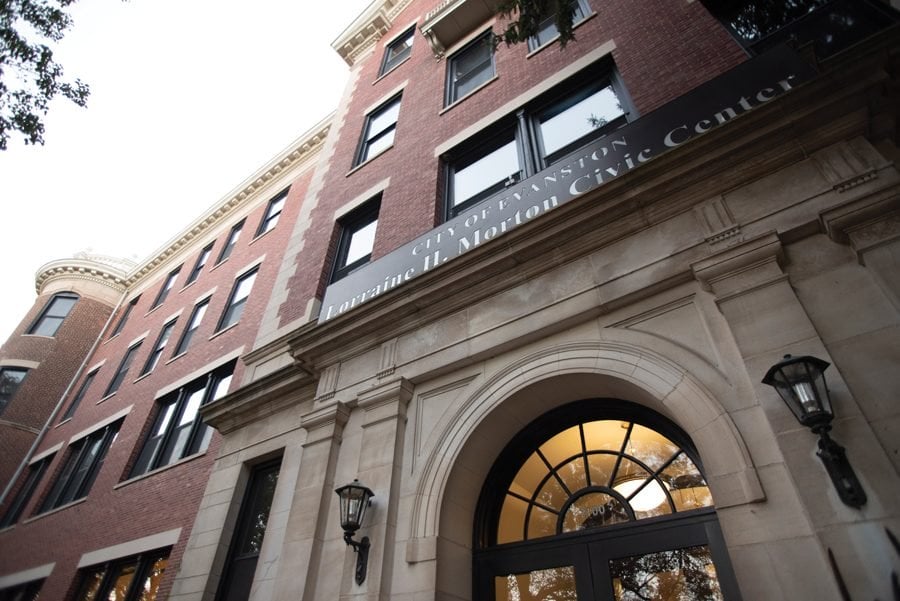City projects a $5 to 7 million loss in revenue for 2021 budget
Daily file photo by Colin Boyle
The Lorraine H. Morton Civic Center. City Council is slated to vote on the creation of a proposed aid fund for undocumented residents.
September 10, 2020
Evanston is projecting a $5 to 7 million loss in revenue for 2021, city officials told residents during a Thursday discussion explaining the city’s 2021 budget.
City budget coordinator Kate Lewis-Lakin and interim assistant city manager Kimberly Richardson led the first of three community conversations about the 2021 budget, breaking down the city’s budget structure and soliciting opinions about next year’s budget from approximately 20 residents who participated in the discussion.
The city expects to see losses in revenue due to a decrease in sales, income, hotel and amusement taxes. The city’s athletic event tax, which principally draws funding from Northwestern athletic events that have been canceled, is projected to draw less revenue, and revenue from parking and recreation fees is also expected to decrease.
Concurrently, expenses are expected to increase in 2021, with about $2.4 million more in personnel costs expected for 2021, Lewis-Lakin said.
To combat the deficit, the city will continue its hiring freeze, which was first implemented in March, and restrictions on discretionary spending, as well as seek grants to bolster revenue. The city will principally focus on funding health and human services needs as the pandemic continues.
The 2020 General Fund experienced a $12 million shortfall — which is equivalent to 10 percent of the year’s projected revenue. Revenue from both sales and income taxes came up 20 percent short, while hotel and athletic contest fees produced only 30 percent and 20 percent of projected revenue, respectively. Lewis-Lakin said the city expects to see a smaller shortfall for 2021 as the state continues the reopening process.
“Of course, there could be a second wave and we’ll all be back here again,” Lewis-Lakin added.
In breakout sessions, residents were given the chance to suggest ways the city could raise revenue or cut spending, as well as give their input on which city services are most important.
Residents generally agreed the city should focus on funding emergency services, as well as housing assistance and economic development to help combat damage to the city’s businesses.
Resident Ken Fox said regardless of where the city ultimately chose to cut funding, it should have a comprehensive plan to manage the shortfall.
“I would hope there’s a logical path by which we address these cuts,” Fox said.
Email: [email protected]
Twitter: @joshuajirvine
Related stories:
— Evanston awarded more than $4 million in grants to fight COVID-19
— Human services committee discusses reallocation of EPD personnel
— Reparations subcommittee backs national reparations bill, talks progress updates during town hall


